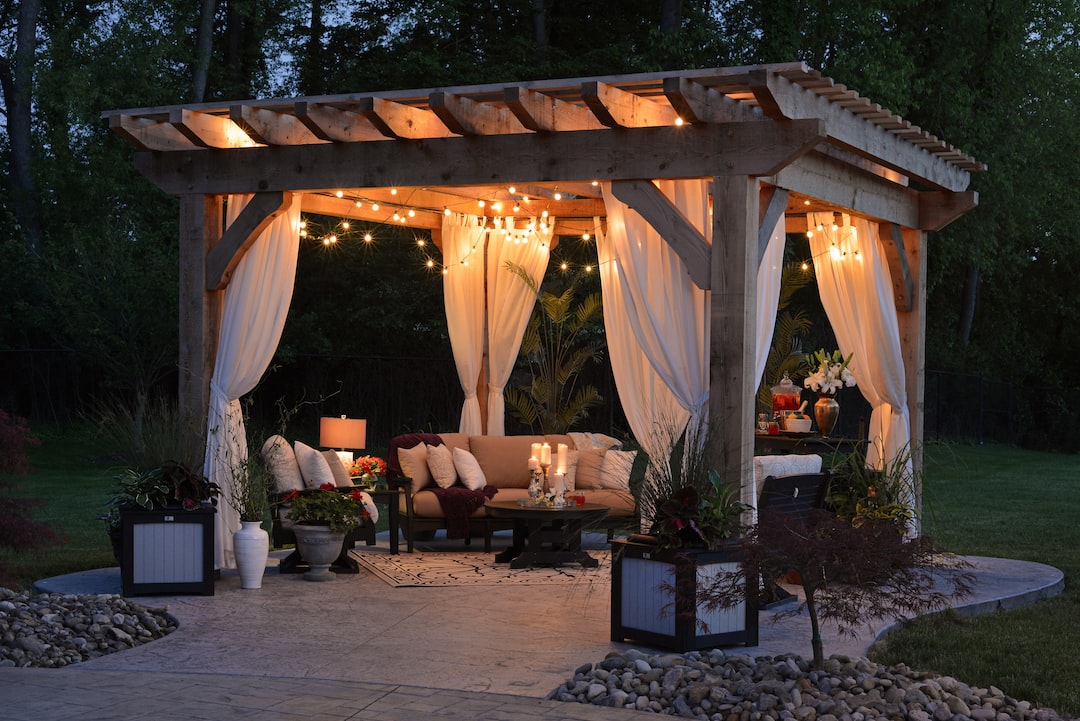Planning a bridal shower can be overwhelming, especially when it comes to the question of who pays for the bridal shower. Who should foot the bill? It’s a tricky situation that requires careful consideration and understanding. Whether you’re looking for ways to save money or simply curious about traditional etiquette surrounding this event, we’ve got all your answers here! We’ll discuss venue options, invitations and guest list considerations, food and drinks ideas as well as decorations and games – everything you need to know about who pays for bridal showers so that everyone involved in planning feels comfortable with their contribution. So let’s get started on finding out exactly who pays for the bridal shower…
Who Pays For The Bridal Shower?
Who Pays for the Bridal Shower?
Traditional Rules: According to traditional etiquette, the bridal shower is usually hosted by the bride’s family or close friends. The host pays for all of the expenses associated with hosting a bridal shower, including decorations, food and beverages, invitations, and any other miscellaneous costs.
Modern Etiquette: In modern times, it is becoming more common for anyone to host a bridal shower. This includes members of both sides of the family as well as close friends or even co-workers. When multiple people are involved in hosting a bridal shower, they may decide to split up the cost among themselves.
When it comes to who pays for the bridal shower, traditional etiquette and modern considerations should be taken into account. Now that you know who pays, let’s look at some great venue options for your bridal shower.
Venue Options
When it comes to choosing a venue for your bridal shower, there are many options available. Whether you’re looking for something intimate and cozy or an extravagant affair, the right venue can make all the difference in setting the tone of your event.
At-Home Showers: Hosting a bridal shower at home is often the most convenient option as it eliminates having to find and book a separate location. It also allows you to customize the space with decorations that match your theme or color scheme. Depending on how many guests you plan on inviting, hosting at home may be more cost-effective than booking a larger venue. If you have enough room in your house or apartment, this could be an ideal choice for smaller gatherings of up to 30 people.
Restaurant or Banquet Hall Showers: For larger groups of 40+ people, renting out a restaurant or banquet hall is usually necessary if you don’t have access to an outdoor space large enough to accommodate everyone comfortably. Many restaurants offer private rooms where they will provide food and drinks according to what fits within your budget. Alternatively, some banquet halls allow outside catering so that you can bring in whatever type of cuisine suits your needs best without being limited by what’s offered by the establishment itself.
If weather permits and there are no noise restrictions in place (depending on where you live), hosting outdoors can be both fun and affordable. You can rent tents from party rental companies along with tables, chairs, linens, dishes, etc., depending on what kind of look and feel you want for your event – whether it’s rustic chic or modern elegance. Then add personal touches like string lights around trees or mason jars filled with flowers to make sure everything looks beautiful yet still functional.
When deciding on a venue for the bridal shower, there are many options to choose from. From hosting at home to outdoor venues, each option offers something special. Next up is inviting guests and tracking responses – let’s take a look at what that involves.
Invitations and Guest List
When it comes to planning a bridal shower, one of the most important tasks is creating and sending out invitations. It’s essential to make sure that all guests who should be invited are included on the list, as well as any special instructions they may need for attending.
Who To Invite: The guest list should include close family members and friends of both the bride and groom, including those who won’t be attending the wedding itself. If you’re unsure about someone’s relationship with either party, err on the side of caution and invite them anyway. It’s also important to consider any potential conflicts between guests; if some people don’t get along or have had disagreements in the past, it might be best not to invite them together.
How To Send Invitations: Once you’ve created your guest list, it’s time to send out invitations. Traditional paper invites can still work great for this purpose but digital options like email or social media messages can save time and money while still getting your message across effectively. Just make sure that everyone has enough information about when and where the event will take place so they know how to attend.
Asking for RSVPs from each guest is an important part of planning a successful bridal shower – without knowing how many people will show up, it can be difficult (or even impossible) to plan food amounts or seating arrangements accordingly. Make sure that each invitation includes clear instructions on how guests should respond (e-mail address? Phone number?), as well as a deadline by which they must do so – two weeks before is usually plenty of time. Finally, keep track of responses carefully so no one gets left off at the last minute due to miscommunication or forgotten follow-up calls/emails.
Once you have finalized your guest list and sent out invitations, it’s time to start thinking about the food and drinks for your bridal shower. This includes deciding who will pay for the event – whether that be yourself or someone else.
Food and Drinks
Depending on the type of event you’re hosting, there are several options available for catering. If you’re looking for an easy solution that won’t break the bank, consider hiring a caterer or ordering takeout from your favorite restaurant. For those who want to get creative with their menu, DIY food ideas can be just as delicious and fun.
Catering Options: Hiring a professional caterer is one of the most popular choices when it comes to providing food at a bridal shower. A caterer will typically provide everything needed including plates, utensils, napkins, and even staff if necessary. This option takes away all the stress associated with preparing meals yourself so you can focus on other aspects of planning your event.
DIY Food Ideas: If you prefer not to hire a caterer or don’t have the budget for one, there are plenty of DIY food ideas that can make your bridal shower special without breaking the bank. Consider making simple finger foods like mini sandwiches or bite-sized desserts such as cupcakes or cake pops that guests can easily grab while mingling around during the party. You could also set up an appetizer buffet featuring cheese platters and veggie trays which require minimal effort but still look impressive.
When deciding what beverages to serve at your bridal shower, it is important to consider who will be attending and whether they would prefer alcoholic drinks over nonalcoholic ones (or vice versa). Alcoholic beverages such as beer and wine tend to be more popular among adults while nonalcoholic options like juice boxes or sparkling water may be better suited for younger guests or those who do not drink alcohol due to religious reasons etc. Whatever beverage selection you choose, make sure there is something for everyone.
When it comes to food and drinks, there are a variety of options available. From catering services to DIY ideas, you can make sure your bridal shower is both delicious and memorable. Now let’s move on to decorations and games.
Decorations and Games
When it comes to decorations and games for a bridal shower, there are many options. Color schemes and themes can be used to create an atmosphere that fits the bride’s personality or wedding theme. DIY decoration ideas such as paper lanterns, tissue pom-poms, streamers, and banners can add a personal touch without breaking the bank. Fun games like “Name That Tune” or “Bride Trivia” will keep guests entertained throughout the event.
For color schemes and themes, consider colors that match the bride’s dress or her favorite colors. If she has chosen a specific wedding theme (such as rustic chic), use elements of this in your decorating scheme too. Consider using items from nature such as pinecones or twigs for centerpieces; hang fabric swatches on walls; use wildflowers in vases; make homemade signs with chalkboard paint; etc.
DIY decoration ideas can be both fun and cost-effective when planning a bridal shower. Paper lanterns come in all shapes and sizes so you can find one that matches your color scheme perfectly. Tissue pom-poms are simple to make with just some tissue paper and string – they look great hung up around the room. Streamers provide inexpensive wall coverage while adding pops of color – plus they’re easy to put up. Banners made out of scrapbooking supplies also look amazing when hung above doorways or along windowsills – plus you get to customize them however you’d like.
Fun games help break the ice at any party but especially at showers where guests may not know each other very well yet. “Name That Tune” is always popular because everyone knows how to play it – have someone pick out tunes ahead of time and then see who can guess what song is playing first. “Bride Trivia” tests guests’ knowledge about their friend by asking questions related specifically to her life story – these could range from childhood memories to current events leading up to her big day.
Finally, don’t forget about prizes for game winners. Small gifts such as candles, lotions, and lip balms will show appreciation for those who participated in making your event special.
FAQs About Who Pays for a Bridal Shower
Does the mother of the bride pay for the shower?
The answer to this question is not definitive as it depends on the family’s traditions and financial situation. Generally, the mother of the bride does pay for at least part of the wedding shower expenses. However, other family members or friends may also contribute financially to help cover costs. Ultimately, who pays for a wedding shower should be discussed between all parties involved before making any decisions.
How much should a bridal shower cost?
The cost of a bridal shower can vary greatly depending on the size and type of event. Generally, it is recommended to budget around $50 per guest for food, drinks, decorations, and favors. If you are hosting a larger gathering with more elaborate decor or activities, you may need to increase your budget accordingly. Additionally, if the bride-to-be has requested specific items or services such as catering or entertainment that will also add to the overall cost. Ultimately, it is important to consider all factors when planning your bridal shower to ensure that everyone enjoys themselves without breaking the bank.
Who is traditionally responsible for the bridal shower?
Traditionally, the bridal shower is hosted by a close friend or family member of the bride. This could be a maid of honor, mother, sister, or even grandmother. The host typically plans and organizes the event as well as pays for any associated costs. They are also responsible for inviting guests to attend and ensuring that everyone has an enjoyable time at the shower. It is important to remember that while tradition dictates who hosts a bridal shower, modern couples can choose anyone they wish to plan their special day.
What does the maid of honor pay for?
The maid of honor typically pays for her own attire, travel expenses to and from the wedding, bridal shower gifts, and any costs associated with hosting a pre-wedding event. She may also be asked to contribute financially towards the bachelorette party or other activities related to the wedding. Additionally, she is often expected to help out with various tasks leading up to the big day such as addressing invitations or helping with decorations. Ultimately, both parties involved (the bride and maid of honor) need to discuss expectations ahead of time so that everyone knows what their financial responsibilities are.




